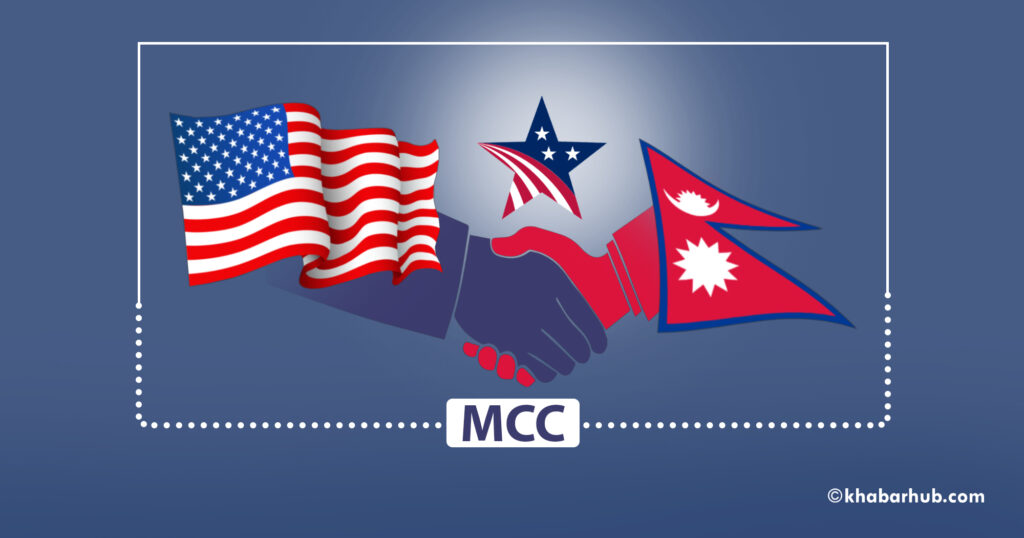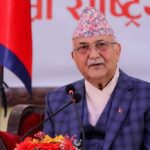The US aid project Millennium Challenge Corporation (MCC) will not immediately return the 500 million grants to Nepal.
Due to the controversy in Nepal over this grant assistance, the uncertainty of losing the assistance had increased. But a discussion at the MCC headquarters on Wednesday removed the uncertainty about whether the grant would be returned as there was no time limit for Nepal to pass the issue in parliament.
Nepal has had a grant agreement with MCC for more than four years. Meanwhile, it was feared that the US government would withdraw the grant aid if the MCC project was not approved by the parliament.
December 15 meeting of the MCC Board of Directors in Washington DC, USA, noted the commitment of the Government of Nepal to get compact approval from Parliament soon. The meeting did not set any time limit for its approval. This indicates that due to the controversy over the project in Nepal, sufficient time has been given by the Parliament for approval.
Political parties, civil society and others are disputing about the grant to be spent on the construction of transmission lines and road infrastructure in Nepal. Due to this dispute, the government has not been able to submit it to the parliament yet. MCC and senior US government officials recently visited Nepal to clarify the grant after it was unnecessarily disputed in Nepal.
Last September, SCC Vice President Fatima Sumar paid a four-day visit to Nepal and met with Prime Minister Sher Bahadur Deuba and top leaders of political parties.
She even pressured the MCC to get approval from the parliament. Sumar also hinted that Nepal’s budgetary assistance could be stopped if the MCC does not approve it. Nepal is currently receiving loans and grants from the World Bank and the Asian Development Bank for its annual budget.
Last November, US Assistant Secretary of State Donald Lu visited Nepal to discuss the project. He then met Prime Minister Deuba, Leader of the Main Opposition KP Sharma Oli and other top leaders.
He urged the Nepali leaders to take immediate decision on the issue of MCC. He emphasized the need to focus on Afghanistan and said that it was even more important now with the crisis.
He told a news conference that Nepal had the sovereign right to accept or reject grants, adding that the United States would give them to other countries if they did not accept them.
The Nepalese intellectuals who met Lu at that time said that politics was rife in Nepal and requested not to set a definite time for MCC approval and not to withdraw the project immediately. Lately, the ruling party Nepali Congress President and Prime Minister Sher Bahadur Deuba has been in favor of holding a table in the MCC Parliament in any case.
However, the ruling coalition parties, including the CPN-Maoist Center and the CPN (Unified Socialist), have been holding conflicting views that the MCC should not be approved by parliament without amending some basic issues. That is why the issue of MCC is becoming complicated in Nepal. Under this MCC project 315 double circuit kilometer transmission line of 400 KV capacity will be constructed. Along with this project transmission line, state-of-the-art road maintenance will also be done. Under this project, 77 kilometers of road from Bhaluwang of Dang to Shivkhola of Banke will be constructed with the latest technology.
The width of the road will be 14 meters. As soon as this project is completed, the electricity generated from Nepal’s hydropower projects will become a suitable medium for export to neighboring countries India and Bangladesh. Under this project, three 400 KV substations will also be constructed.
MCC will provide ५० 500 million in grants for the project. The Government of Nepal has agreed to invest USD 130 million on its behalf. The then Finance Minister Gyanendra Bahadur Karki had signed the agreement for the project in 2017.
(Karuna Thapa)



